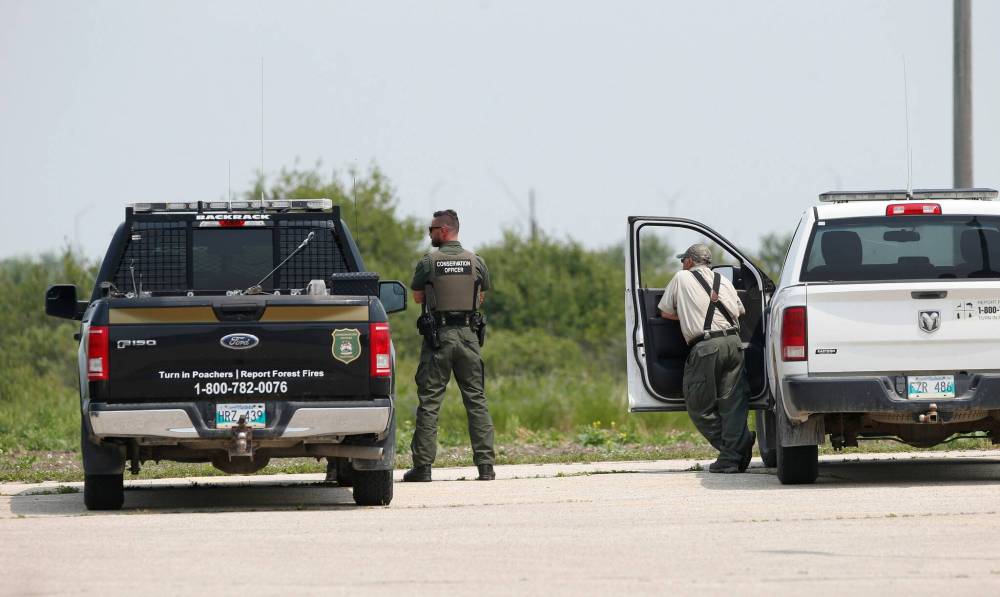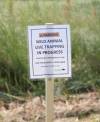Conservation officers killed coyote that attacked kids, DNA confirms
Advertisement
Read this article for free:
or
Already have an account? Log in here »
To continue reading, please subscribe:
Monthly Digital Subscription
$0 for the first 4 weeks*
- Enjoy unlimited reading on winnipegfreepress.com
- Read the E-Edition, our digital replica newspaper
- Access News Break, our award-winning app
- Play interactive puzzles
*No charge for 4 weeks then price increases to the regular rate of $19.95 plus GST every four weeks. Offer available to new and qualified returning subscribers only. Cancel any time.
Monthly Digital Subscription
$4.99/week*
- Enjoy unlimited reading on winnipegfreepress.com
- Read the E-Edition, our digital replica newspaper
- Access News Break, our award-winning app
- Play interactive puzzles
*Billed as $19.95 plus GST every four weeks. Cancel any time.
To continue reading, please subscribe:
Add Free Press access to your Brandon Sun subscription for only an additional
$1 for the first 4 weeks*
*Your next subscription payment will increase by $1.00 and you will be charged $16.99 plus GST for four weeks. After four weeks, your payment will increase to $23.99 plus GST every four weeks.
Read unlimited articles for free today:
or
Already have an account? Log in here »
Hey there, time traveller!
This article was published 04/01/2024 (736 days ago), so information in it may no longer be current.
A coyote killed by conservation officers in North Kildonan in July was the animal that attacked two children in the Winnipeg neighbourhood in June.
The Manitoba Conservation Officer Service said recently completed analysis confirmed the DNA profile taken from the shirt of one of the victims matches that of a coyote that officers killed on July 3.
Measurements Manitoba Agriculture veterinarians took during a necropsy of the animal showed the coyote’s teeth spacing was consistent with the bite marks on the first victim, the conservation service said on Thursday.

Conservation officers watch over a stand of trees on June 25, 2023, for a coyote that mauled a small boy on Knowles Avenue. (John Woods / Winnipeg Free Press files)
Last summer, Manitoba Conservation said officers captured and killed five coyotes in the weeks following the separate attacks.
The first attack was on a nine-year-old boy, who received 24 stitches to the back of his head after the mauling on June 24.
The boy was walking home with his 15-year-old sister near Popko Crescent and Knowles Avenue around 6:45 p.m., when a coyote approached and attacked.
A neighbour who heard the boy’s screams used a shovel to scare the predator away.
During the evening of June 30, a coyote attacked a four-year-old girl from behind near the retention pond at Headmaster Row. The girl was hospitalized with undisclosed injuries.
The conservation service ramped up efforts to capture and cull the animals in the area in the weeks after the attacks, while warning the public to be wary.
Manitoba Conservation said the number of conflicts between coyotes and humans in the neighbourhood dropped substantially after the July cull, but the service expects the number of the animals in the area to eventually rebound.
The animal appeared to get accustomed to direct or indirect feeding by people, which the conservation service said it believes played a role in the coyote’s behaviour.
The conservation service reiterated that the public shouldn’t feed wildlife, indirectly or directly. Conservation said indirect means of feeding predators includes feeding prey such as birds and rabbits, which can attract coyotes and other predators to the area.
Coyotes that have been fed by people tend to become comfortable approaching humans — and could become aggressive as a result, the conservation service warned.
History
Updated on Thursday, January 4, 2024 1:56 PM CST: Corrects spelling of Headmaster Row







